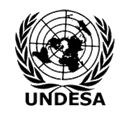 19 April 2016: The UN’s Inter-Agency Task Force on Financing for Development (IATF) released its first report, with a focus on its plans for monitoring implementation of the commitments made in the Addis Ababa Action Agenda (AAAA) on financing for development (FfD) in future years.
19 April 2016: The UN’s Inter-Agency Task Force on Financing for Development (IATF) released its first report, with a focus on its plans for monitoring implementation of the commitments made in the Addis Ababa Action Agenda (AAAA) on financing for development (FfD) in future years.
The AAAA mandates the IATF to report annually on progress in implementing the FfD outcomes and the means of implementation (MoI) of the 2030 Agenda for Sustainable Development, and to advise the intergovernmental follow-up processes on implementation gaps and recommendations for corrective action (para 133).
Because of the short time since the AAAA adoption, the inaugural report does not provide substantive assessments, but only proposals for the follow-up process. The report situates the implementation of the AAAA commitments in the context of relevant recent developments, including: the adoption of the 2030 Agenda for Sustainable Development; the adoption of the Paris Agreement under the UN Framework Convention on Climate Change (UNFCCC); the entrance into force of the International Monetary Fund (IMF) quota and governance reforms, which were agreed in 2010; and the Global Infrastructure Forum, led by the multilateral development banks (MDBs), which was launched in Washington, DC, US, on 16 April 2016.
The report notes that ITAF’s “primary official audiences” will be the UN Economic and Social Council’s (ECOSOC) Forum on FfD Follow-up (FfD Forum), and the High-Level Political Forum on Sustainable Development (HLPF). The first FfD Forum convened from 18-20 April 2016, and welcomed the proposed “three-pronged approach” of the 2016 IATF report. The Forum’s outcome document expresses that governments “look forward” to future IATF reports containing: a discussion of the global context and its implications for the follow-up process; an overview of each chapter of the AAAA highlighting synergies between the chapters of the AAAA, including the updated data and issues, while covering the broader set of commitments and action items in an online annex; and analyses of thematic issues.
According to the IATF report, the Sustainable Development Goal (SDG) indicators, particularly those for the targets on means of implementation (MOI), will be “important inputs” to the IATF’s work. The report will complement the annual statistical report on the SDG indicators by providing: a review of the additional commitments and action items in the AAAA and other FfD outcomes; an assessment of progress in implementing agenda items that may not be easily captured by quantitative indicators, such as qualitative measurements in areas where data is lacking; and an analytical discussion of the issues to give a fuller picture of implementation, assess the impact of financing flows and policies on achieving goals, and promote knowledge sharing and mutual learning.
The report explains that IATF members see their role as mapping out policy options and analyzing underlying assumptions and economic, social and environmental implications, while leaving the final policy choice to the national and international political processes.
The IATF report was launched at an event in New York, US, on 19 April 2016. An IMF representative said the Report emphasizes not only on financing but also the policies needed to create an enabling environment for investment in sustainable development. A UN Development Programme (UNDP) representative highlighted that the report maps all commitments made in the AAAA, the depth of which is “breathtaking,” including commitments on climate and humanitarian issues. [IATF Inaugural Report 2016, ‘Addis Ababa Action Agenda – Monitoring commitments and actions’] [FfD Forum Conclusions and Recommendations (Advance, Unedited)] [Addis Ababa Action Agenda] [Letter on IATF First Meeting] [IISD RS Story on IATF Launch]